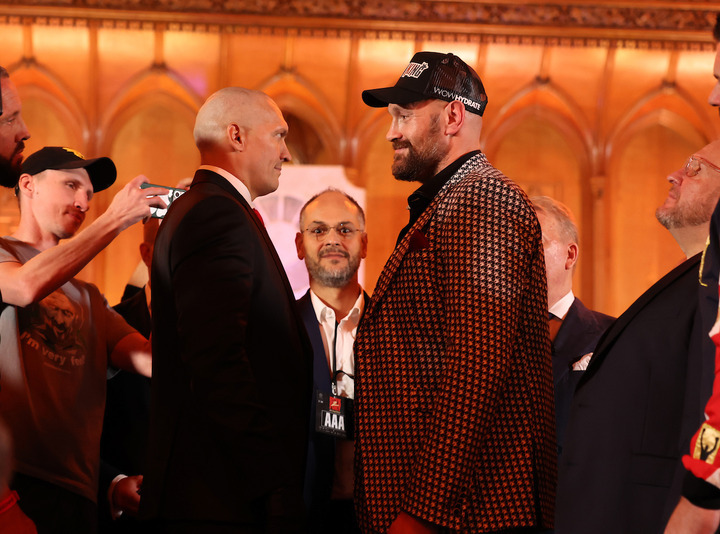When Tyson Fury says that Oleksandr Usyk neither surprised him nor was particularly difficult to fight back in May, it really doesn’t matter whether you choose to believe him or not. All that really matters, in fact, is that Tyson Fury has decided to say it, more than once, and that, in saying it, he presumably believes it.
Whether the rest of us do is neither here nor there. We only watched the fight. We only saw Usyk hurt and almost stop Fury in round nine before settling for a reasonably comfortable points win. This was our view of events – and indeed it is an agreed, almost universal one – yet that still does not mean Fury is wrong to say, or believe, what he said either. He, after all, was the one feeling the fight; not simply watching it. He had an insight not one of us outside the ropes can match; an insight even Oleksandr Usyk, the man with whom he shared a ring, will not have ahead of their rematch on December 21.
Asked yesterday if there was anything that surprised him about Usyk in May, Fury said on TNT Sports, “Being honest, as I always am, it was actually easier than I thought it would be. I listened to Tony Bellew, and I listened to AJ (Anthony Joshua), and they said this guy is so hard to hit, he’s The Matrix. So I’m thinking this guy must be really hard to hit. I’m expecting to be missing him a lot. But in realistic terms he was much easier to hit than I anticipated and it got me a little bit complacent because every time I threw an uppercut to the body or the head, or a feint, I would hit him.”
Of all the things said at Wednesday’s launch press conference, this was one of the more interesting, if only because you could sense the conviction. It is entirely possible, too, that both things can be true; that is, it can be true that Fury was soundly beaten by Usyk in May, but also that he came away from the defeat that night with a belief, or at least some knowledge, he was previously without. That alone could be a decisive factor when these two heavyweights meet again. For no longer is Usyk a surprise, or some mythical being, in the mind of Fury. He is instead someone who was easier to hit than he expected and someone who only managed to get the upper hand and ultimately beat Fury because Fury, to use his own theory, got complacent and was having too much fun.
If that happens to be true, any element of it, Fury should be just fine as far as confidence goes on December 21. He may, ironically, have even more confidence going into the rematch coming off a defeat than he had going into the first fight, back when he was unbeaten yet Usyk, his opponent, represented the unknown and created in him so much uncertainty.
It is worth noting as well how the first fight changed, and how the momentum shifted. It changed suddenly, you will remember, after a period in which Fury appeared to be settling down, working Usyk’s body and looking on course to take over and pull away. It changed just as he was starting to relax, feel good about himself. It started, perhaps, just as he was getting ahead of himself, a tad complacent.
In other words, should you hear Fury’s account of fight one and believe what he is saying, there is enough proof in that fight to convince yourself both you, and Fury, are not going mad. Equally, there is enough proof, both in how Usyk turned the fight around, and how Usyk turns every fight around, to indicate that the trajectory of fight one had less to do with Fury and more to do with his opponent. Meaning, although it could be true that Fury found Usyk easier to hit than expected, and although it could be true that he found the fight itself easier than expected, what probably surprised him in the end was how Oleksandr Usyk was still able to do to him what he has done to every opponent he has faced in his 22-0 fight pro career – without knowing how, without seeing it coming, without even realizing it.


ADD COMMENT VIEW COMMENTS (30)